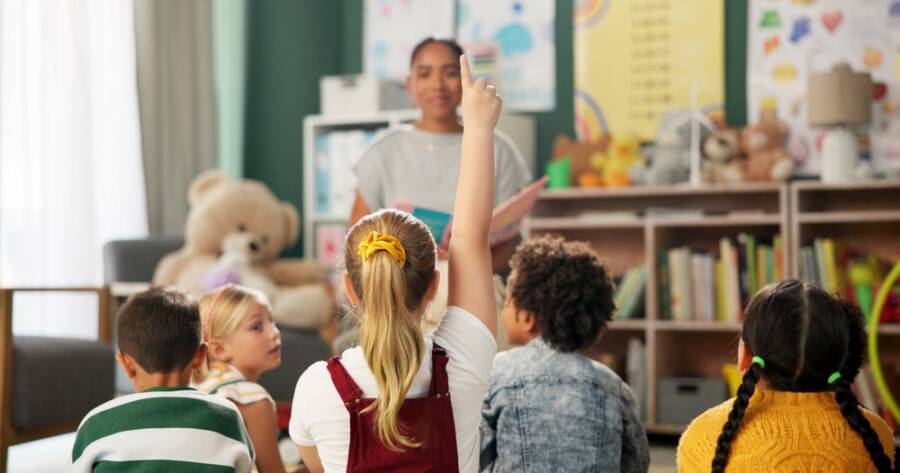The Montessori Method is an educational approach that emphasizes independence, respect, and a deep love of learning. Developed by Dr. Maria Montessori, this method is gaining popularity among parents and educators who seek an alternative to traditional schooling. Explore the principles behind Montessori schools, the materials used, and the mindset that shapes this unique educational experience.
The Core Principles of Montessori Education
At the heart of the Montessori Method is the belief that children are natural learners. Dr. Maria Montessori emphasized that education should respect each child’s individuality and encourage their natural curiosity. The method is centered on providing a prepared environment where children can explore, learn, and grow at their own pace.
One of the key principles is self-directed learning. Unlike traditional education, where the teacher is the central authority, Montessori teachers act more as guides than instructors. They observe each child and provide the tools and guidance needed for them to discover and understand the world around them.
Another important aspect of Montessori education is the mixed-age classroom. This structure allows children to learn from one another and encourages social development. Younger children are inspired by older peers, while older children reinforce their knowledge by teaching the younger ones.
Montessori Schools: A Unique Learning Environment
Montessori schools are designed to be welcoming, stimulating spaces that foster creativity and independence. The classrooms are typically divided into distinct learning areas that allow children to engage in different types of activities—academic, artistic, and practical life skills. Each area is equipped with age-appropriate Montessori materials, which are used to support hands-on learning and promote problem-solving.
The structure of a Montessori school is very different from traditional schools. Classrooms are often arranged to allow for free movement, and children have the autonomy to choose what they work on. This freedom helps students develop decision-making skills, responsibility, and self-discipline.
The school day is often more flexible than that in traditional education. Instead of being bound by strict schedules, children in Montessori schools are encouraged to follow their natural rhythms and engage in activities they find interesting. The emphasis is on creating a love for learning, rather than focusing solely on academic achievement.
Montessori Materials: Tools for Exploration and Learning
Montessori classrooms are filled with specially designed learning materials that are meant to be tactile, engaging, and educational. These materials are used to support active learning and allow children to explore concepts in a hands-on manner. Each item is carefully crafted to help children understand abstract concepts through physical manipulation.
For example, Montessori math materials like the golden beads and number rods are designed to help children grasp basic mathematical concepts by feeling and manipulating objects. Similarly, language materials such as sandpaper letters allow young children to learn the alphabet through touch and sight, making the process more engaging and memorable.
The materials are often self-correcting, meaning that children can identify and correct their mistakes independently. This promotes confidence and a sense of ownership over their learning, as children are not reliant on an adult to guide them through every step.
The Montessori Mindset: Nurturing Independent Thinkers
The Montessori Method is not just about using specific materials or following a set curriculum. It’s also about nurturing a particular mindset in both children and educators. At the heart of the Montessori mindset is the belief that children are capable, independent thinkers who can drive their own learning experiences.
This approach encourages children to take responsibility for their learning by fostering a sense of autonomy. They are encouraged to make decisions, solve problems, and ask questions. Teachers in Montessori schools are not there to simply give answers but to help children find their own solutions. This process builds critical thinking skills and helps children develop a love of discovery.
In addition, the Montessori Method stresses the importance of respect and empathy. Children are taught to respect not only their teachers but also their peers and the environment. This respect extends to the classroom materials, as the child learns how to handle tools and resources carefully and thoughtfully.
Is Montessori Right for Your Child?
The Montessori Method offers a unique approach to education that prioritizes self-directed learning, independence, and respect. Its hands-on materials and flexible classroom environment foster creativity, problem-solving, and a lifelong love of learning. However, it’s essential for parents to consider their child’s learning style and the type of environment they thrive in.
If your child enjoys exploring at their own pace and is driven by curiosity, Montessori education may be an excellent fit. However, if your child thrives in more structured settings, you might want to explore other educational options. Ultimately, the Montessori Method offers a dynamic and enriching experience that encourages children to become confident, independent learners.

